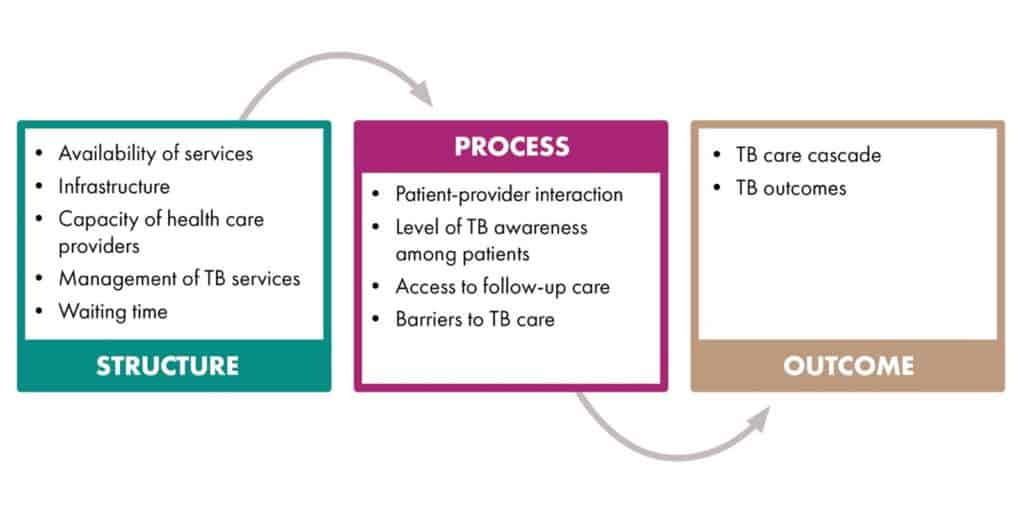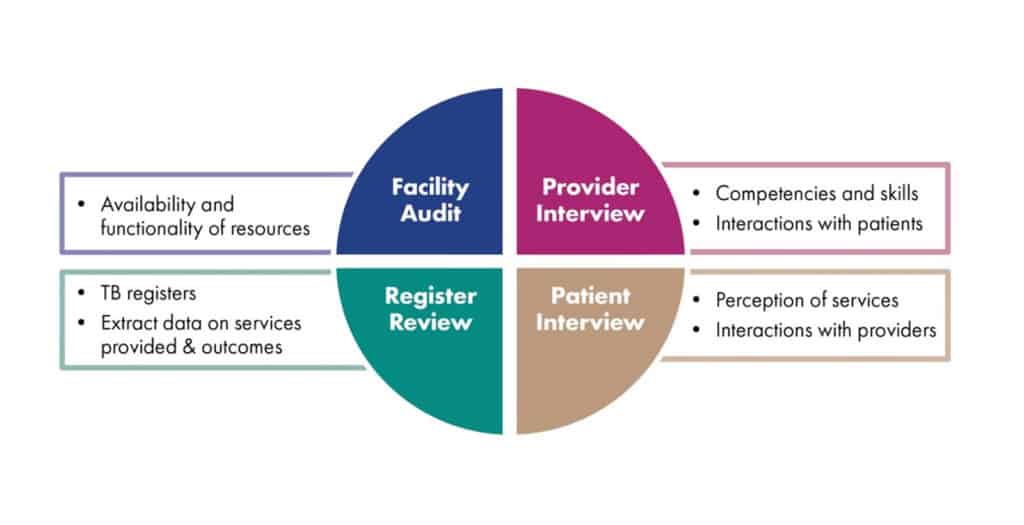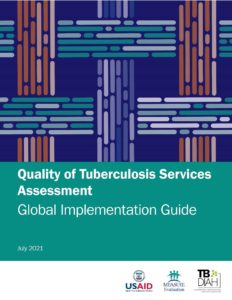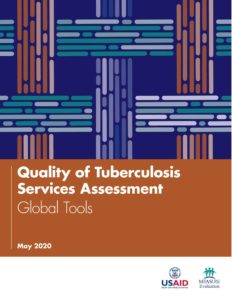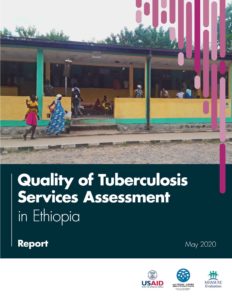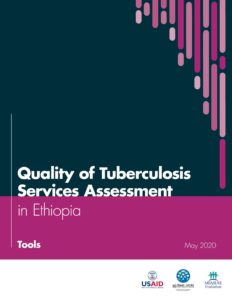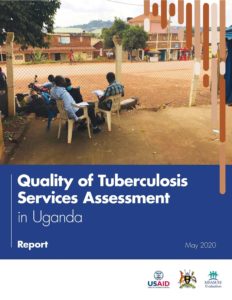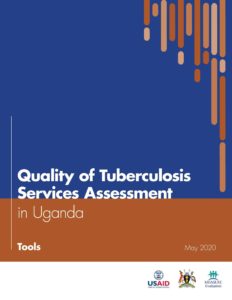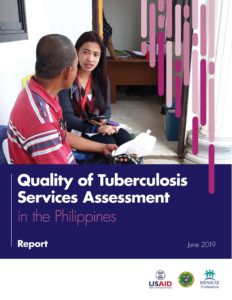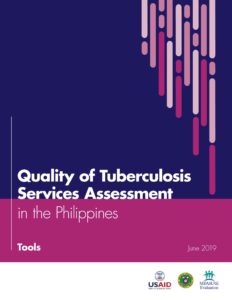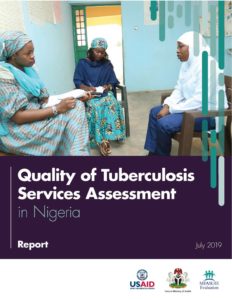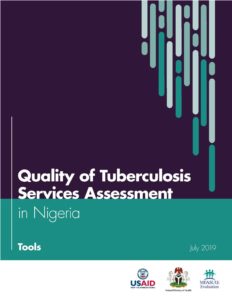According to the 2018 Global Tuberculosis Report released by the World Health Organization (WHO), tuberculosis (TB) is the tenth leading cause of death worldwide, and the leading cause of death from a single infectious agent.
Studies show that good quality of care in TB services helps patients and their families meet their health needs safely and effectively. Therefore, there is a need to assess and improve the quality of TB services. MEASURE Evaluation Phase IV, funded by the United States Agency for International Development (USAID), initiated a series of Quality of TB Services Assessments (QTSAs) to evaluate TB service quality in randomly selected health facilities in a number of priority TB countries. The QTSA portfolio was transferred to the TB Data, Impact Assessment, and Communications Hub (TB DIAH) project (also funded by USAID), which is extending assessments to more high-burden TB countries in Africa, Asia, and Europe.
The purpose of the QTSA is to identify where services are of high-quality and where there are gaps, and ensure that TB patients receive the care that they deserve. The QTSAs assess three domains of quality of care: the structure of the health facility; the service delivery process; and the outcomes of service delivery.

